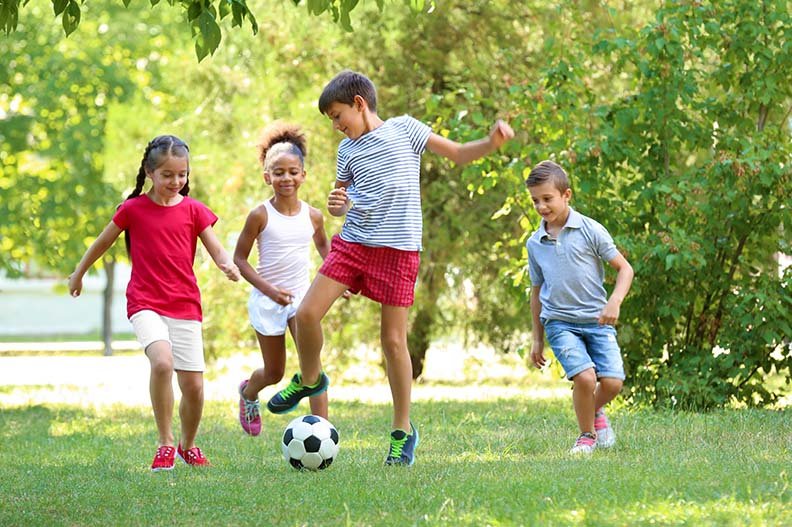wellness for children
In today’s fast-paced and often stressful world, ensuring the wellness of children is more important than ever before. Wellness goes beyond the absence of illness — it encompasses physical, emotional, mental, and social health, all of which play a crucial and interconnected role in a child’s overall development and long-term well-being. Parents, caregivers, educators, and communities have a shared responsibility to create nurturing environments that support these essential aspects of wellness. By understanding the multifaceted nature of wellness and actively fostering healthy habits and supportive relationships, we can lay a strong foundation that helps children grow into resilient, confident, and healthy adults. This blog will explore the key dimensions of wellness for children and provide practical, actionable tips to promote their ongoing health and happiness.

Physical Wellness: Building Strong Foundations
Physical health remains the cornerstone of overall wellness for children, serving as the foundation upon which other aspects of well-being are built. Encouraging daily physical activity is critical, whether through free outdoor play, organized sports, biking, swimming, or simple family walks. These activities help children develop strong muscles and bones, improve cardiovascular fitness, maintain a healthy weight, and enhance coordination and motor skills. Alongside movement, nutrition plays a vital role—providing a diet that is balanced and rich in essential nutrients such as vitamins, minerals, protein, fiber, and healthy fats supports optimal growth and immune function. Offering colorful fruits and vegetables, whole grains, lean proteins like poultry and fish, and dairy or dairy alternatives ensures children receive the fuel needed for energy and development. Importantly, establishing consistent sleep routines is essential, as most children require between 9 and 12 hours of restful sleep per night depending on their age. Sleep not only supports physical recovery but also memory consolidation and emotional regulation, underscoring its importance in holistic health.

Emotional and Mental Wellness: Nurturing Resilience
Emotional and mental wellness in children is a fundamental pillar that influences how they perceive themselves and interact with the world. Emotional wellness involves helping children recognize, understand, and express a wide range of feelings in a healthy and constructive manner. Creating a safe, supportive atmosphere where children feel comfortable sharing their emotions without judgment is essential for fostering emotional intelligence and resilience. Parents and caregivers can encourage children to talk openly about their worries or frustrations and teach coping strategies such as deep breathing, mindfulness exercises, or journaling to manage stress and anxiety effectively. Promoting mental wellness also entails regular mental stimulation and cognitive engagement through reading, creative play, puzzles, and problem-solving activities that enhance concentration and emotional regulation. Limiting excessive screen time is equally important, as it helps prevent negative effects on attention span and social skills. Teaching children self-compassion, encouraging positive self-talk, and offering praise for effort rather than just outcomes helps build healthy self-esteem and a growth mindset.

Social Wellness: Developing Healthy Relationships
Social wellness is an integral aspect of a child’s development that helps them form meaningful connections, work collaboratively, and develop empathy. Encouraging children to engage in social interactions with peers, siblings, and adults enhances their communication skills, confidence, and ability to cooperate. Participating in group activities such as team sports, clubs, arts and crafts groups, or community service projects can improve a child’s ability to work successfully within social settings, recognize diverse perspectives, and resolve conflicts peacefully. Modeling positive social behaviors — like active listening, kindness, patience, and respect — at home and in community settings guides children toward building strong interpersonal skills. Teaching children how to manage disagreements constructively and practice forgiveness not only fosters social harmony but also equips them with essential life skills. These experiences collectively contribute to a child’s sense of belonging, emotional security, and overall happiness, laying the groundwork for healthy social relationships throughout life.

Creating a Wellness-Focused Environment
Creating an environment centered on wellness involves intentional choices that support and nurture every dimension of a child’s health and development. Establishing predictable daily routines that balance academic responsibilities, physical activity, creative play, rest, and quality family time helps children feel secure and develop healthy habits. Designing living spaces that encourage movement, such as safe play areas indoors and outdoors, promotes physical activity and exploration. Schools and community organizations have a crucial role to play by providing nutritious meal options, engaging physical education programs, social-emotional learning opportunities, and mental health support services. Encouraging open dialogue about feelings and wellness with teachers and peers empowers children to seek help when needed. Additionally, limiting exposure to harmful environmental factors such as excessive noise, screen time, or stressful situations creates a healthier overall atmosphere where children can thrive. Together, families and communities can collaborate to build holistic support systems that cultivate wellness and lifelong success.
Conclusion
Promoting wellness for children requires a comprehensive, balanced approach that integrates physical health, emotional support, mental stimulation, and social development. By prioritizing these areas, parents, caregivers, and educators can help children build strong foundations for healthy growth and equip them with the skills needed to navigate life’s challenges confidently and compassionately. Wellness is not a destination but a lifelong journey of nurturing habits, instilling resilience, and fostering positive relationships that promote overall happiness and well-being. Investing time, attention, and resources in children’s wellness today lays the groundwork for healthier, happier, and more fulfilled adults tomorrow — creating a brighter future for individuals and communities alike.

